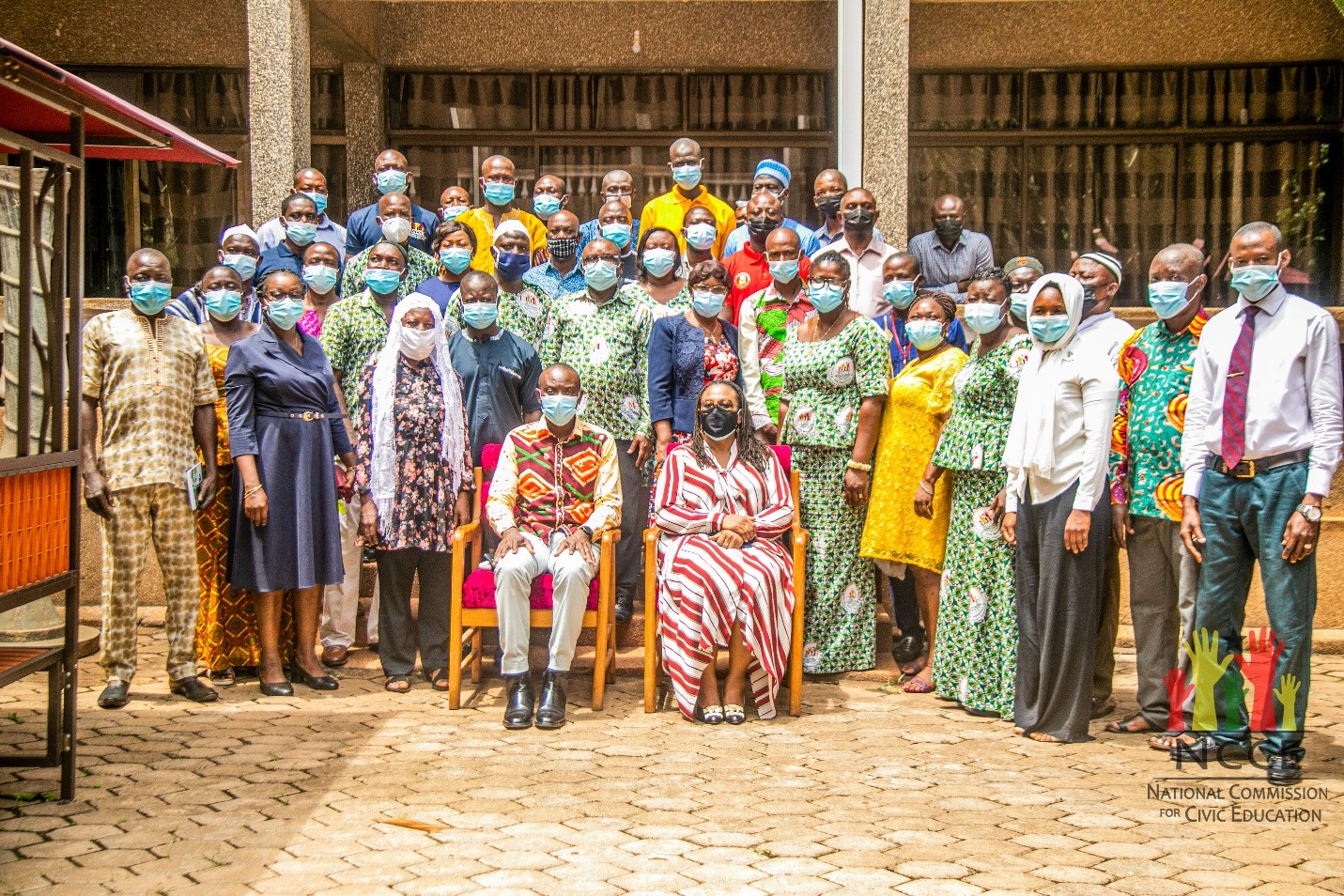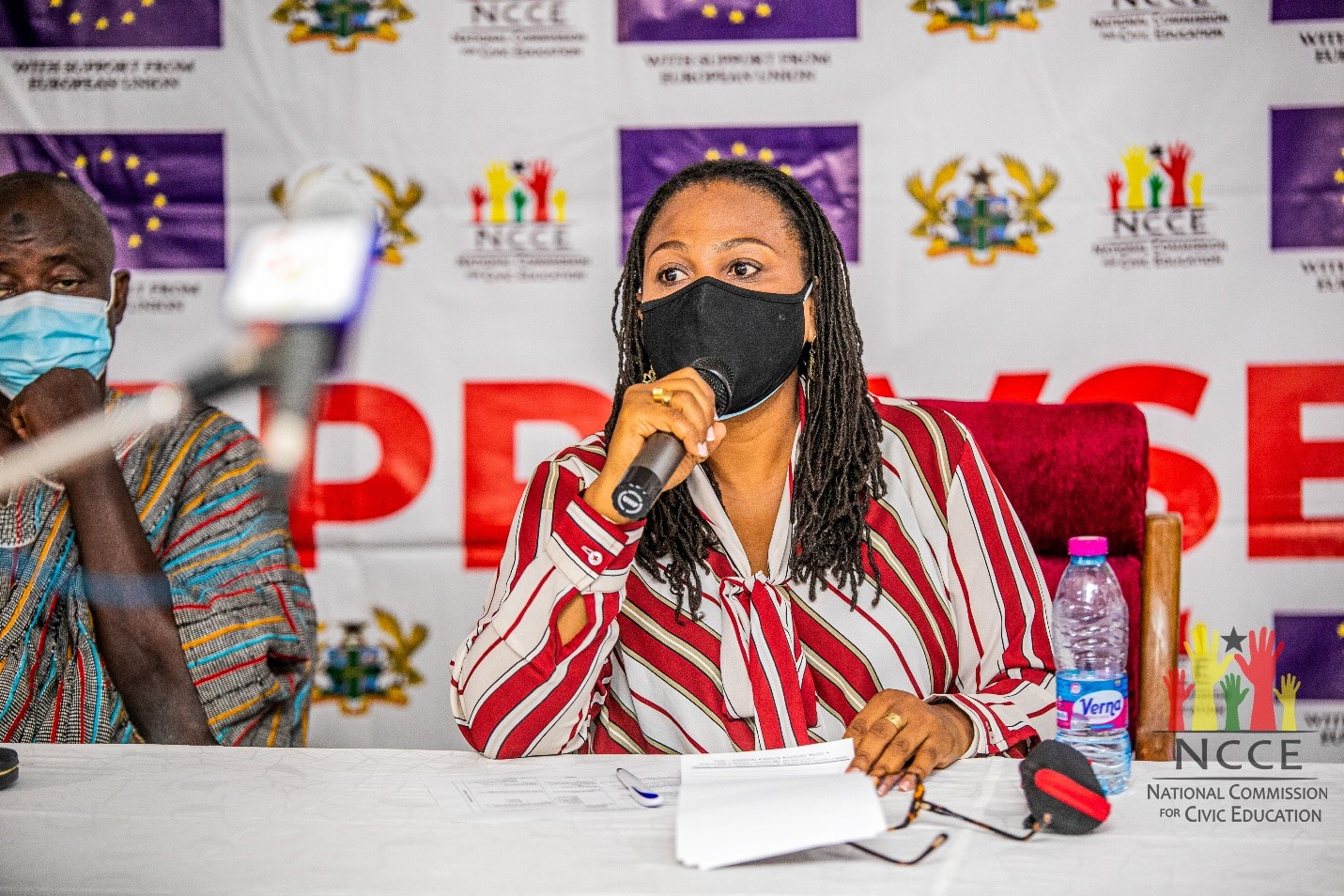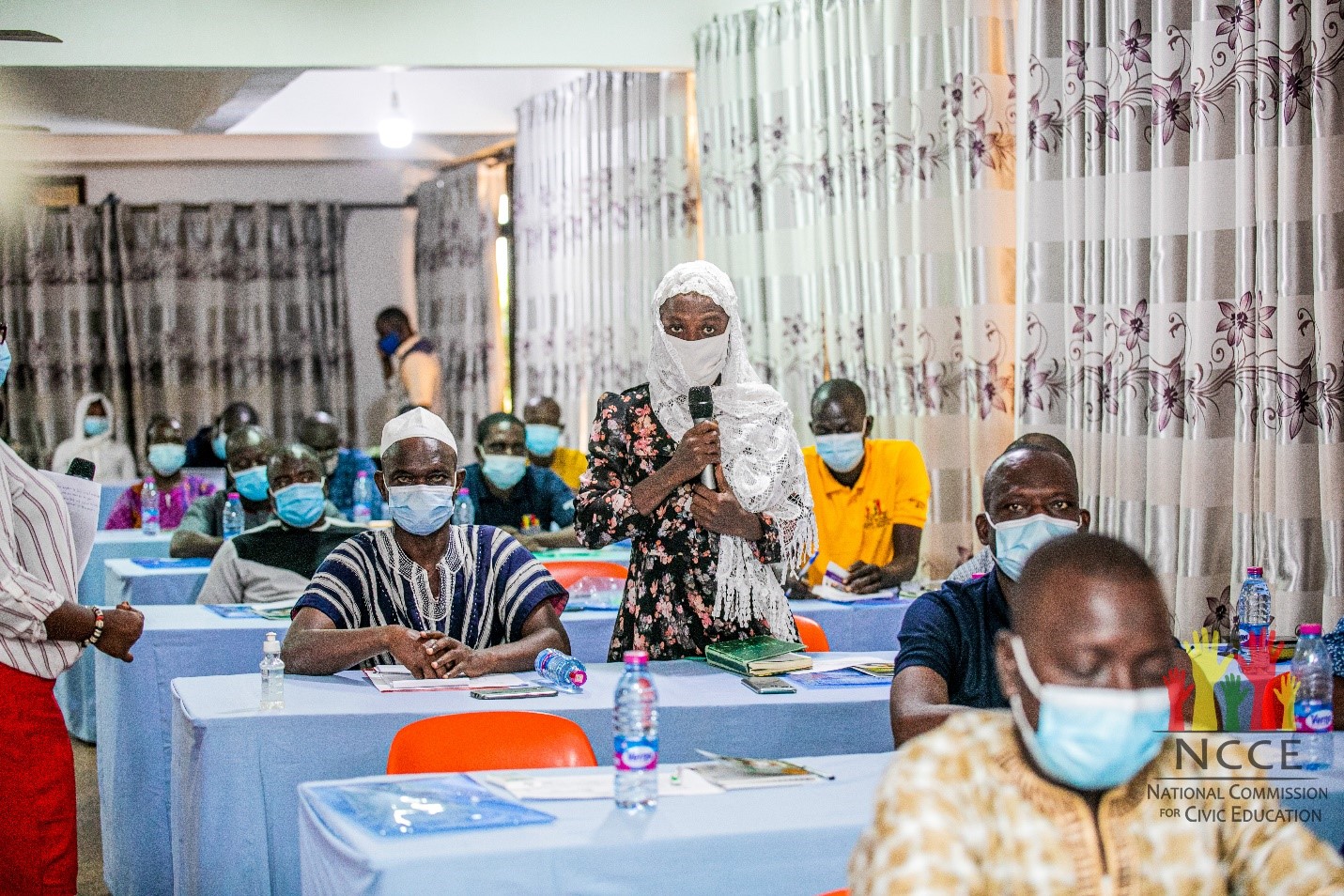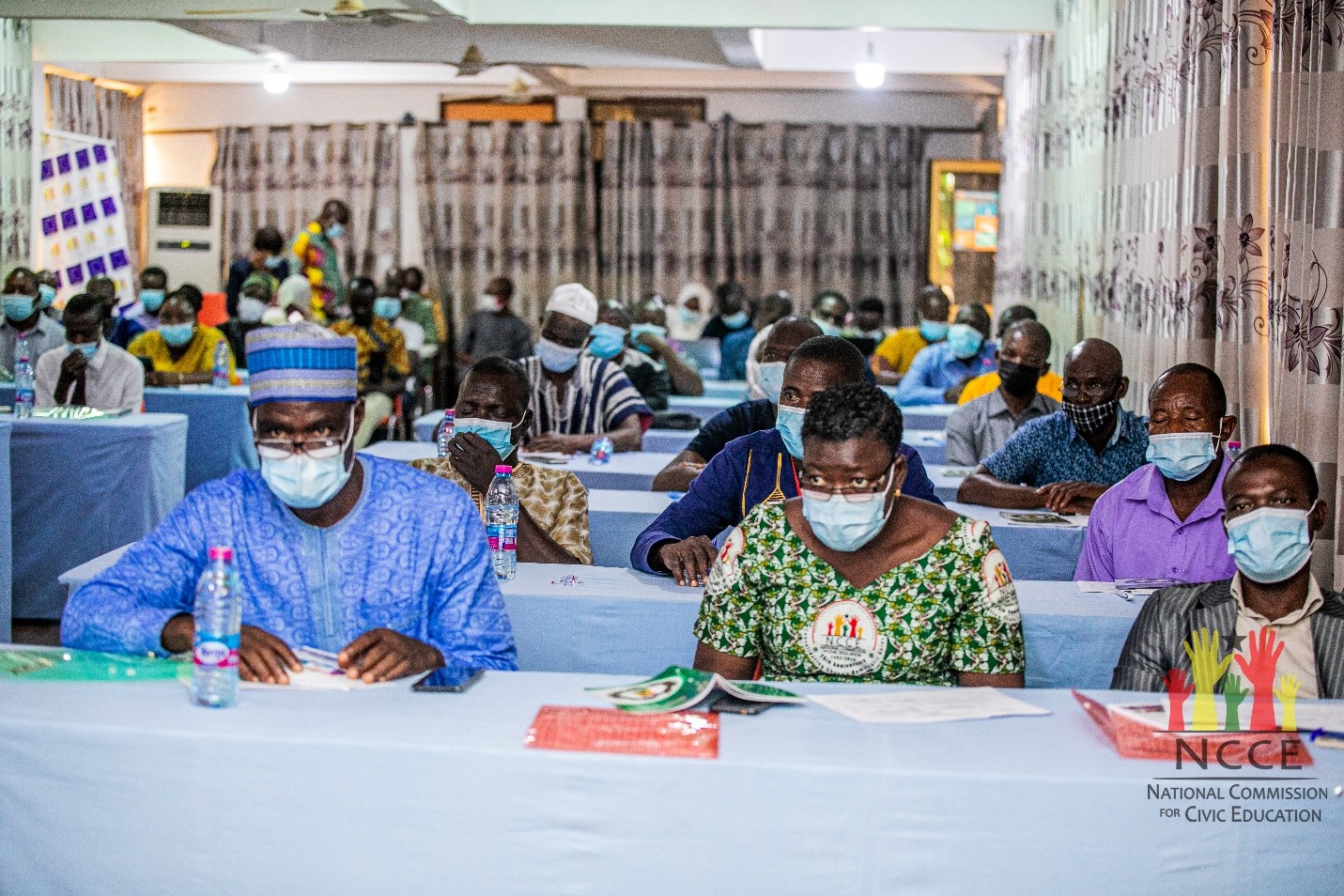As the National Commission for Civic for Education (NCCE) commences vigorous education on the risks and threats of violent extremism, Ms. Josephine Nkrumah, Chairman of NCCE, has stressed the need for Civic Educators to understand the triggers, features, and forms violent extremism takes in order to properly educate the Ghanaian citizenry to be mindful, vigilant and be able to identify the threats in order to help counter the menace.
Ms. Nkrumah made these remarks in Tamale when she opened the training workshop for the first batch of NCCE District Directors, as part of Preventing Electoral Violence and Providing Security to the Northern Border Regions of Ghana (NORPREVSEC) project. The workshop aimed at enhancing the capacity of staff to effectively heighten awareness creation among the public on violent extremism and on how to mitigate their impact.
“We see and hear the horrifying stories of attacks by extremists groups in Burkina Faso, Ivory Coast, Mali, and Nigeria. It is so near to us” she stated, adding that “If we do not take steps as a people to mitigate that risk and to stamp it out before it begins to take roots, then we would become vulnerable and subject to the very threats of Violence Extremism”. She stated that our political stability cannot be compromised because it has a ripple effect on our economy and the lives of Ghanaians. The Chairman stated that “as Civic Educators, our duty is to reorient the mindset of Ghanaians to understand the importance of religious tolerance, as well as the inherent threats of secessionism, electoral violence, youth unemployment, chieftaincy disputes, and corruption pose. She expressed the need for stakeholders to work together to sustain all these activities so that they do not become the breeding grounds for violent extremism to take roots in Ghana.
Acknowledging the huge task ahead, Ms. Nkrumah urged participants to pay attention and engage with resource persons in order to beef up their knowledge to effectively educate their constituents on various signs of violent extremism and how to detect early warning signs when they go back to their districts. She also urged the citizenry to be alert and peace-loving in order to complement the National Security efforts in protecting our borders, the people, and the human security of Ghana.
Dr. Henrietta Asante-Sarpong, Director of Research, Gender, and Equality, who gave an overview of the NCCE’s Research on Risk/Threat Analysis of Violent Extremism in Ten Border Regions of Ghana, indicated that the Commission has a pivotal role to play in helping the citizenry identify signs of radicalization. To develop security consciousness and situational awareness among the citizenry, she stressed the critical role of education to arouse public consciousness on violent extremism.
The NCCE Northern Regional Director, Alhaji Razak Sani in a welcome address noted that the DNA of Ghanaians abhors violence, and reminded participants of their responsibility to ensure that this country is safe and peaceful. He said the training which was going to prepare them adequately to recognise the manifestation of Violent Extremism in order to help address them, was timely and necessary at a time of growing incidence of violent extremists’ attacks in the Sahel and West African Sub-region.

A group photograph of participants at the workshop in Tamale, Northern Region. Seated from left: Mr. Emmanuel Sowatey, Institute of Criminology, Cambridge University-UK, a resource person, and Ms. Josephine Nkrumah, Chairman of NCCE.

Ms. Josephine Nkrumah, NCCE Chairman opening the workshop in Tamale, and flanked by Alhaji Razak Abdul Saani, NCCE Northern Regional Director.


A section of the participants at the training programme in Tamale, Northern Region.


Leave a comment